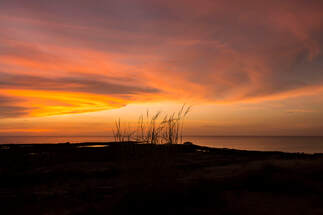 Love grows in the places between the earth beneath our feet and the sky above our heads—where we dream and hope and wish for things. We think of this "in between"—the places in our imagination—as not quite real. Or, at least, not as real as the food we eat and the shoes we walk in. But dreaming is real. And we need our wishes and our dreams to keep us gardening souls, growing love. We need to nurture hope for our children and their children and the future they will have. We do that in our inner world, when we "see" with our vision, our capacity for opportunity and our yearning for ideals. The best future we can give our nearest-dearest ones is the one where they look back and have not a whiff of a question that they were loved for who they are. We give them that today. So dream of a good tomorrow and next year and distant future for those who belong in your circle of connection. See them with eyes that acknowledge them as your most valued treasure—even when that is hard. Because you have eyes to see the future if you look inward and then turn that vision out toward the horizon. And what hovers there ahead, maybe even years from now, is built on what you choose today. Choose to grow love. It lasts forever.
1 Comment
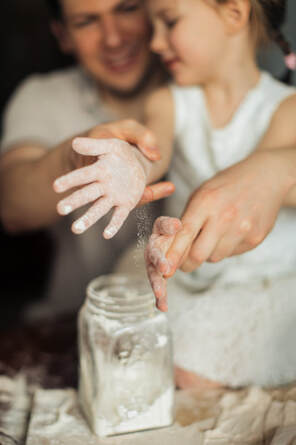 Happy Valentine's Day and Month to all of you, even if it is long gone! We don't need a special holiday in order to do something to nurture love. In fact, love is more likely to be growing in the mundane of every day life—it's just that it is so slow that you won't notice its growth much of the time. Love grows in the every day of the mundane day after day. Nothing like a pandemic to remind us that we live in a string of days...sometimes feeling like the fog is setting in. But here in these days of everything-normal-and-nothing-exciting...here is where we choose to value our circle of connection, our family of belonging. And we can make even the most ordinary day feel special for someone else (who is probably caught in the fog, too) with a few simple expressions of delight. A cup of something they love—coffee with whipped cream? Delivered with a smile and "I hope you wanted one of these." Or a box of macarons because "I know you love these." Or a new sweater—"I wanted you to feel cozy." Or for some, it means even more if you say, "It's too cold to walk, so could we go for a drive today? I want to spend some time together." Growing love is not difficult. But even the simplest of things can be a bit hard. Rise to the challenge, and grow some love in your circle of life today. It's a great day for love to grow—we will beat this Covid test. And it will be a good memory if we look back and see that it was a time when we cultivated love. Make today a Holy Day—make sure someone you love feels your presence, knows you see them, "gets" the message. They matter. Love matters. 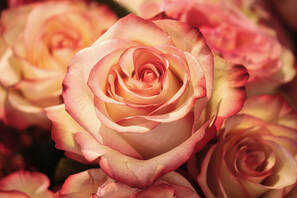 It's the month of love—a good time to celebrate love...for a very simple reason. It deserves to be celebrated! It's a good time to cultivate love, because it doesn't just grow on its own—we need to take some initiative and tend it the way we do our garden treasures. If you want to grow roses, you plant them where they get sunshine in good doses, water in small but continuous doses, and protection from the winter cold. Relationships are much the same—only, don't you think that they deserve more attention, more time, more resources than your lovely flowers? Of course, flowers deserve a place in the sun! I love flowers (you know it). But relationships are the growing buds, the luscious blooms, the delicate petals of meaning that we tend to in our daily lives—if we want something of sustained and satisfying beauty to fill our souls. You grow love much the same way you grow roses—protect it from harsh doses of judgmental coldness...provide plenty of warmth and delight...and make sure there is acknowledgement of value...a slow steady stream is helpful! Relationships that get the same kind of understanding and the diligent eye of provision from a "people gardener" are just as likely to become beautiful with blossoming buds as the roses we care for in our front yard. Love grows nearly anywhere if it gets a good start and a continuous supply of nurturing kindness. 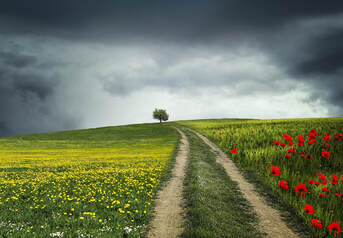 There are places on this earth that don't sustain a growing garden. Too much extreme cold, not enough light, bad soil...the list is a sorrowful one for gardeners. But some soils, some places, don't sustain growth. Not true of love. You can always grow love where you plant it. The love that you nourish with your protective instincts, those seeds that you cover with warmth and delight—they will grow. If there is a stubborn refusal in someone in your circle of human connection that discredits your offering of love, you may question whether it is worth the effort. And there is a time to walk away. But when we are talking about the vulnerable ones who need our secure and safe acknowlegment of value...don't doubt the work of your kindness and nurture. Don't question that it will grow into something beautiful. You may not be able to see the love that is growing, but your kindness, your steadfast commitment to be present and to see the ones who are most forgotten—that too is love. And while those seeds are germinating and sprouting there is a truth in the power of love. Nothing has more power than love. If you give it away with honest integrity, it will have an impact. Don't give up. Even in the hardest places, love grows. And makes a difference. 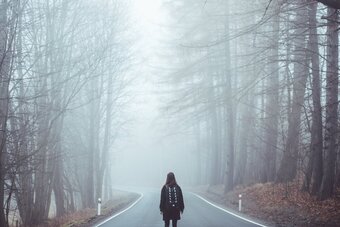 Love grows in the quiet, cold season of winter. The sun goes down early and gets up late and nights are long and dark. It is not a season of growth—or is it? According to the mystics (St. John of the Cross to be specific), this season of darkness (and cold and sometimes hopelessness) is when roots grow deeper. We dig down into what is of value and hang on to it. And that includes love. Love grows deeper and stronger when you hang on through the tough days. When you value that significant person you have linked your life to...even though it doesn't feel like fun-in-the-sun-good-times. If you are loving someone through a dark spot of depression, illness, grief or pain (physical or emotional) you are not just hanging on. You are growing love. And here's the best news...you are growing love for them: covering them with the beauty of white crystals that catch the light. But you are also growing love for yourself. You are equally filling your own soul with a bigger space for what matters most. Love. Love matters. Growing love is sometimes hard work. But always worth it.  Love grows everywhere and anywhere it is planted and tended. What does that mean? It means we have endless numbers of ways to plant love—to value our belief that connection to each other is worth more than any other single things we do in this lifetime. And it means we have to provide the conditions for those seeds to grow. We choose what we value...and then we have to value seeds we have planted and make sure they get nourished...with time, attention, protection, consideration and care. If you care about someone (value them) and they don't feel cared for, they need MORE of the conditions that will grow the seeds of love. You may think you have done enough...but that isn't the standard of care that works. Care means the other person feels your care. You may think you are protecting them, but they need to feel safe. When they feel safe and cared for, you have provided the conditions for love to grow. Love grows in the peaks and valleys—the ups and downs—both. When you get that life is rocky and hard and has surprises that are sometimes good and sometimes challenging...and when you determine that through those valleys you will be reliable in this one thing—connection— then love grows. Make that commitment to this day: love grows here. Whether it is a great day or a day of obstacles, choose the pathway of connection—see the people you love with eyes that acknowledge and delight in them. Be a protector, be a safe place. And provide conditions that offer comfort and safety in answer to their fears and frustrations. And love will grow. A month ago a beloved father and husband of a family from my childhood community took his last breath with his children and wife all surrounding him. It was such a relief to me (an answer to many prayers) that the pandemic didn't rob them of that last moment alone and together. The gift of staying alongside til the end—if you have the strength to face it—is one of the best things you can do.
I woke up the next morning and my first thought was this: "I must pray for "Vern" and his family." And then I remembered. Vern is no longer with us on this side of the eternal divide. He has moved on—his body has been left empty and useless. He still lives but not here. And my second thought which followed: So I must now pray for the family as they mourn. This is just as crucial as the prayers I have been offering over the weeks leading to this day. It dawned on me— this morning they all woke up with a little (or with a rather large) shocked awareness. "Dad is gone." It is a thought that feels like it will swallow you, each time you wake up. Sometimes even months after someone has gone—sleep has offered respite, and then with the morning sun the shock of loss returns. My understanding of this shock is not something I am sure of, but it is something I have considered...here is how it maybe works: Our world is a strong, solid composite of bits of land that form the crust we live on. The geography of our home planet. But the essence of our home, the reality of belonging to this cluster of humanity is that we live in a world that is mysteriously and invisibly made up of souls. We form one whole unit—a world of unseen but equally real space, filled up with one soul at a time. And each time a soul leaves, a hole the size of a crater is left where they created the same solid, strong composite in the unseen world. This departure leaves a gaping, taunting hole that threatens to never be filled. Because if there is one thing that is a mystery and yet a sure truth that we all agree on, there is no such thing as a human soul that is not unique. One of a kind. Exactly every time a soul leaves the world, there is a hole. An actual hole. A hole that cannot and will never be filled. And those standing next to the hole, nearest to the soul, connected by love—those who shared daily bread with him (or her) feel the darkness of a hole punched through the planet. A crater that reaches out into eternity and sucks the breath from our chest with a longing for the one we love. And yet, the physical earth continues to spin on a tilt as it circles the sun, and we have to find a way to face the morning. There is no answer to this. It can't be fixed. It can't be repaired—there is no "soul patch" that can change the crater and make it well. There is no platitude that will lessen the pain or make it feel less precarious to stand next to the empty space where a soul was, and now is not. But to stand there alone—because friends or family are afraid of coming near. To stand there alone—this is what we cannot allow. We cannot leave our friends to face their grief and re-encounter the shock of waking up to an empty-soul-crater on their own. We don't know what to say for a good reason. Saying is not the way of grief. Silence is the way of sharing the pain. Being willing to encounter the discomfort and the anguish, being unhurried in the moments of sitting and watching the dark hole—this is the work of true friendship on the days when that hole is still shocking and startling. And your breathing is shallow in case you might lose the very air you gained from being loved. Don't let the ones who stand at the crater's rim lose sight of the love that holds onto them in these unspeakable days. Stand near and keep still and offer the simplest gifts—a glass of water, a hand to hold, a reminder that you loved the soul they've lost. Loved enough to come near and stand in witness to the un-fillable hole. Being disconnected even from one side is more than we can bear. So keep the connection—see the hole and share the moment. And if tears come in lashings to fill the crater, know that mourning is the gift that allows the memories to come back and also fill the hole and hold the meaning. Each soul is precious beyond what we measure in words. When someone goes to war and loses a limb (or two) and comes home with burn marks running from an ugly stump up their torso and around the back of their body...
When someone who has faced such a radical shift of capacity—the loss of a leg upon which to walk—returns to the place where they engage with the life they had before their traumatic loss... When anyone of us becomes a fraction less of who we were at any one time, no matter what that fraction of loss may be-- Those who witness this do not expect life to go back to normal, to return to what it was-- do they? Life without a foot, a leg, an arm or even an eye is not ever going to be "normal" again. It is a permanent loss. Losing a beating heart, a warm hand that reaches toward us when we are alone, a familiar voice that calls our name, or a place to rest our head on top of someone else's, or next to or even under their chin...losing such a person is not something you ever "bounce back" from. The change is permanent. What is missing cannot be replaced. We can learn to live again, to adapt and make some changes. We can find ways to walk on, move forward. But if we walk with a limp? If we hobble and stumble and never again break into a jog, let alone a sprint? If our brokenness does not let us do the tango....Is that not one of the acceptable ways of being? There is a way of being that is incomplete. Not what I was and not what I would choose to be. But don't pretend I can get over the loss of someone who was and always will be a part of me. A hollow unfilled space inside that echos with a capacity for innocent joy that I no longer have. Do I live more intentionally as a result? Yes. But don't expect that I will ever fully heal. And don't ask me to pretend. (You can't pretend to tango.) We live in our own brokenness—it's true. Whatever is broken inside us is there to stay—probably forever. If that is a scary thought to you, let me reframe it into something you might have the courage to embrace.
None of us get through childhood without a few moments of futility, vulnerability, loss and sorrow. If we know we are broken, we have seen those moments for what they are: human imperfection (either our own or someone else's or circumstances beyond our control). If we don't have sorrow for those moments of loss (brokenness), we maybe don't have the full access to our emotions that we need for healing. People who have shut down their emotions live with a deficit—of self-awareness, of compassion, of empathy...and because they don't have those feelings, it is very hard to embrace justice. (Think about it—so much sense to this.) So if you are feeling broken and perhaps are even in pain in this day, what I'd love to give you is a big word-hug and sit beside you and let you know you are not alone in your sorrow. But I'm going to give you something else instead. A big word-kick-into-clarity. Here it is. The place of brokenness and hurt that you are in is also the place of opportunity. If you can embrace the sorrow and cry for the losses you have endured, you will find a way through it. That is the design and purpose for tears—they wash away toxins in your brain and they help you find the pathway forward. What these same tears leave you with, however, is a pathway of beauty. Beauty for ashes, almost literally. There is a sea of compassion and kindness that comes with the act of grieving. When we have faced the sadness inside ourselves, when we have been honest with the brokenness, we come out as people who make room for the hard time that someone else is facing. We have empathy, we have capacity for compassion, we carry ourselves with patience and kindness. The work you are doing today to care for yourself is the gift you will give to someone else tomorrow or next week. It is not selfish or even self-centred to face your brokenness and grieve the losses. It is hard work and you are a magnificent human being making the world a bigger, better place by nurturing compassion in your own life. We are More than Our Self.
When we reflect on who we are as a person, we so often think in terms of our own self—our gifts, our values, our preferences, our skills. But we are very much who we are as a result of the memories made within the relationships of our lives. We are shaped by what gave us joy, contentment and safety in our early life. Or by what was missing and left us feeling uncomfortable or unstable—anxious, unable to find joy and inner peace. As life goes on, the memories stack up, like walls of a lego house punctuated with the colours we love as well as a few that feel unhappy. That is a huge topic. I have no wish to tackle the whole thing today—but here is a tiny slice taken from the meaning of the bigger picture of how memories "make us" who we are. When someone dies, you lose the option and opportunity to continue life with them. You no longer have the "looking forward to" part of life with them. You stop the making of memories and only have what was behind you. And that is a major hole. But in our grief, sometimes we forget—I absolutely forgot and lost site of this in my loss—that the memories you hold with value are yours forever. Some of those memories happened before you had the capacity for remembering (preverbal memories). Yet they formed you. No one can take away those times, or the way they impacted you. The joy they created within you. You—the you of today—is still connected to the lost person by the memories you created together. The person who has left may feel "gone"—but the relationship is not gone. It is preserved (only in part, but at least in part) by the memories you carry. Grieve the loss—yes. But also be aware that some things can never be lost. They are a part of who you are, and always will be. |
Author/Elaine
I write on how humans develop and grow through challenges we face. I've divided this into three categories--Growing Love is about relationships and how we create conditions for growth despite the inevitable challenges. Cloudburst is about grief, specifically—which is a tricky topic. We need to keep growing but pushing is the opposite of helpful. And in Dancing on Hot Sand I talk about personal inner growth in hard places—spiritual growth, without sounding religious, I hope. Archives
April 2021
Categories
All
|
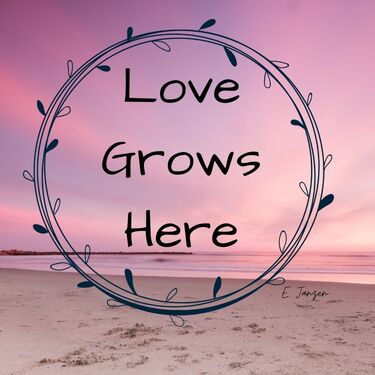
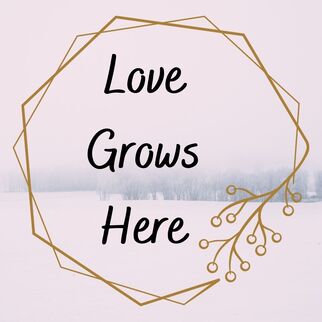
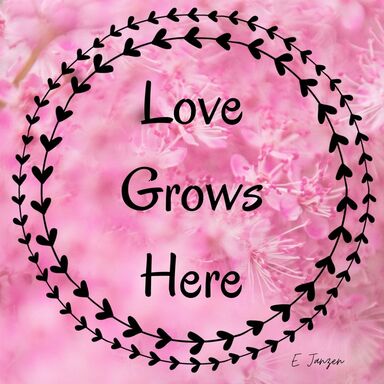
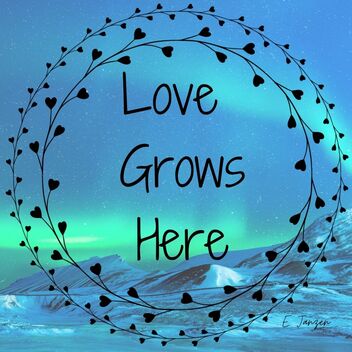
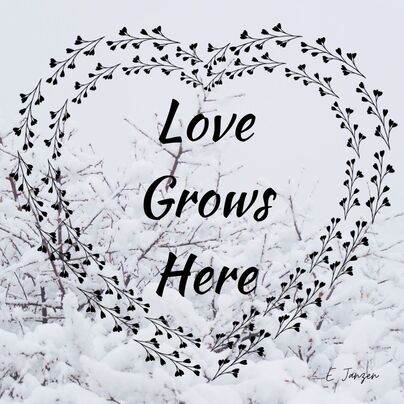
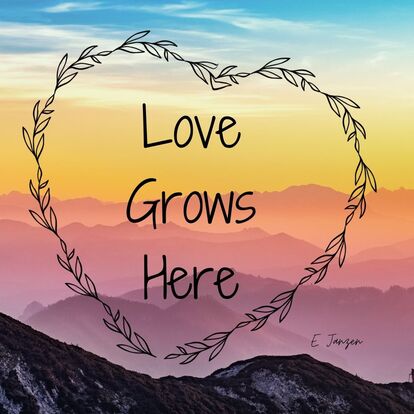
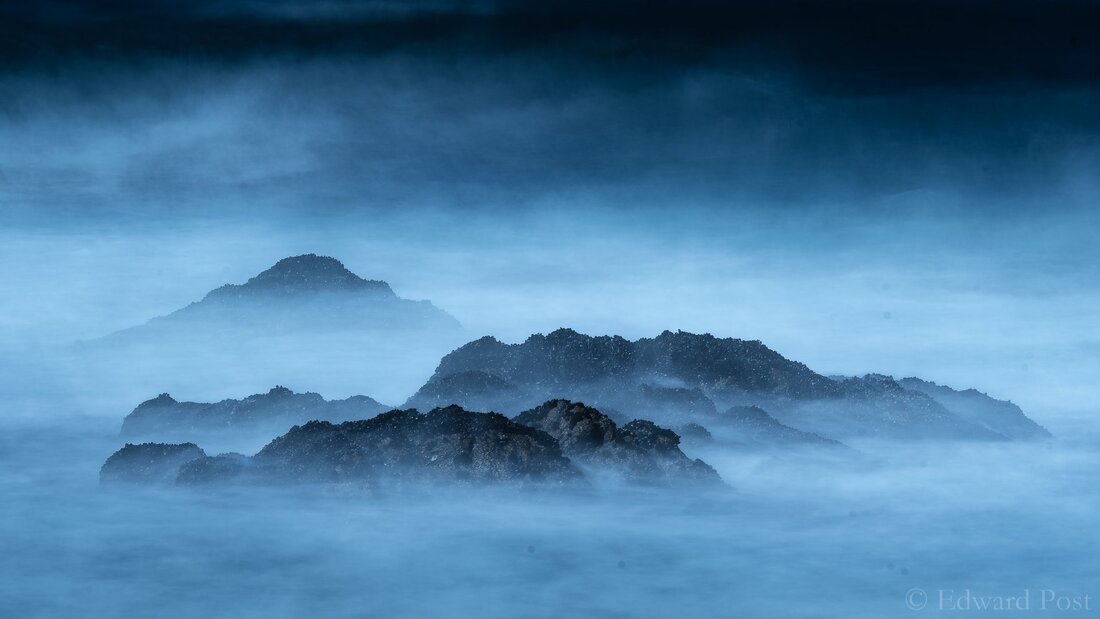
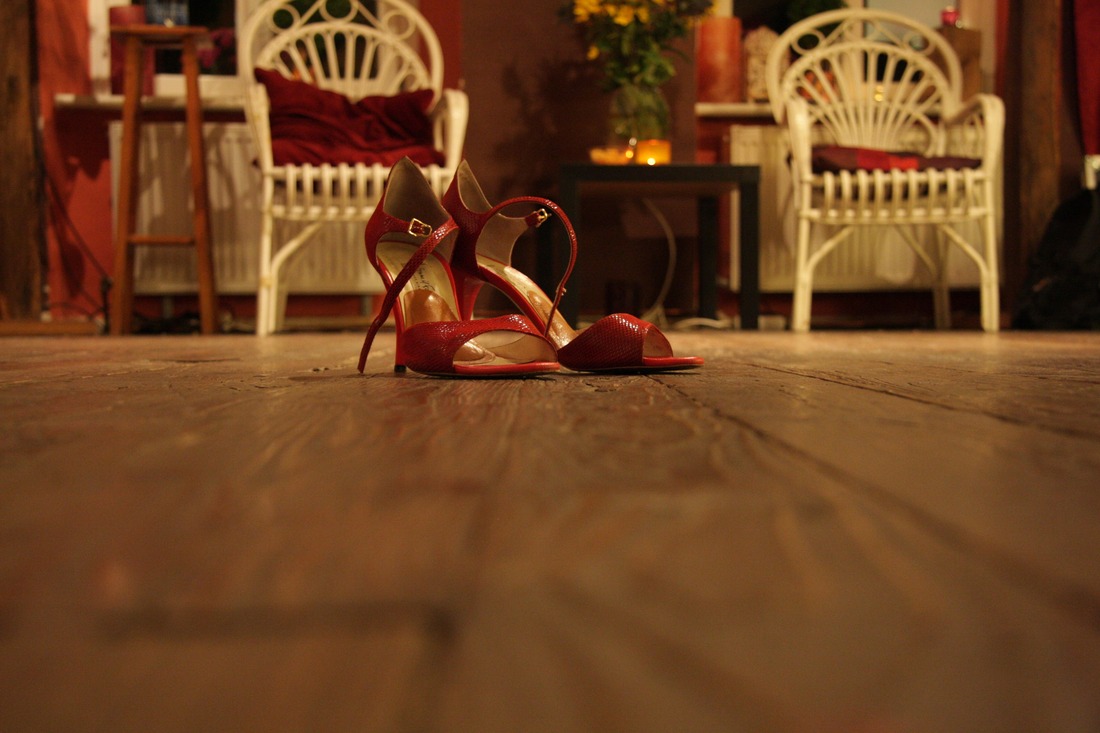
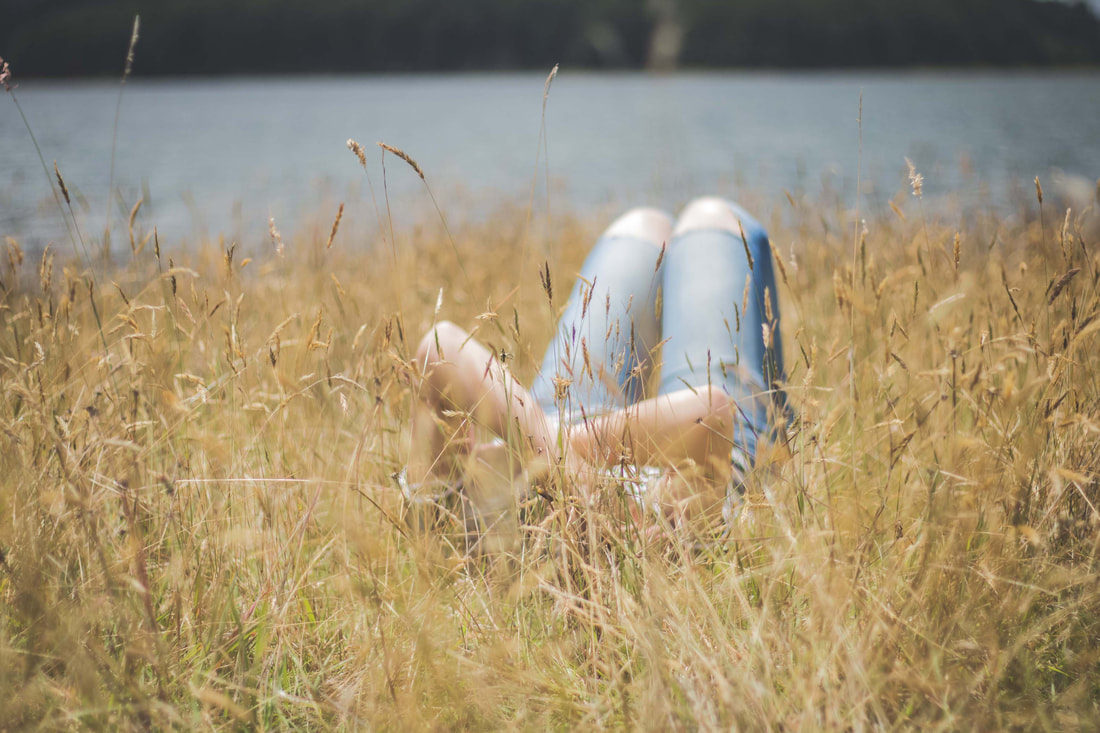
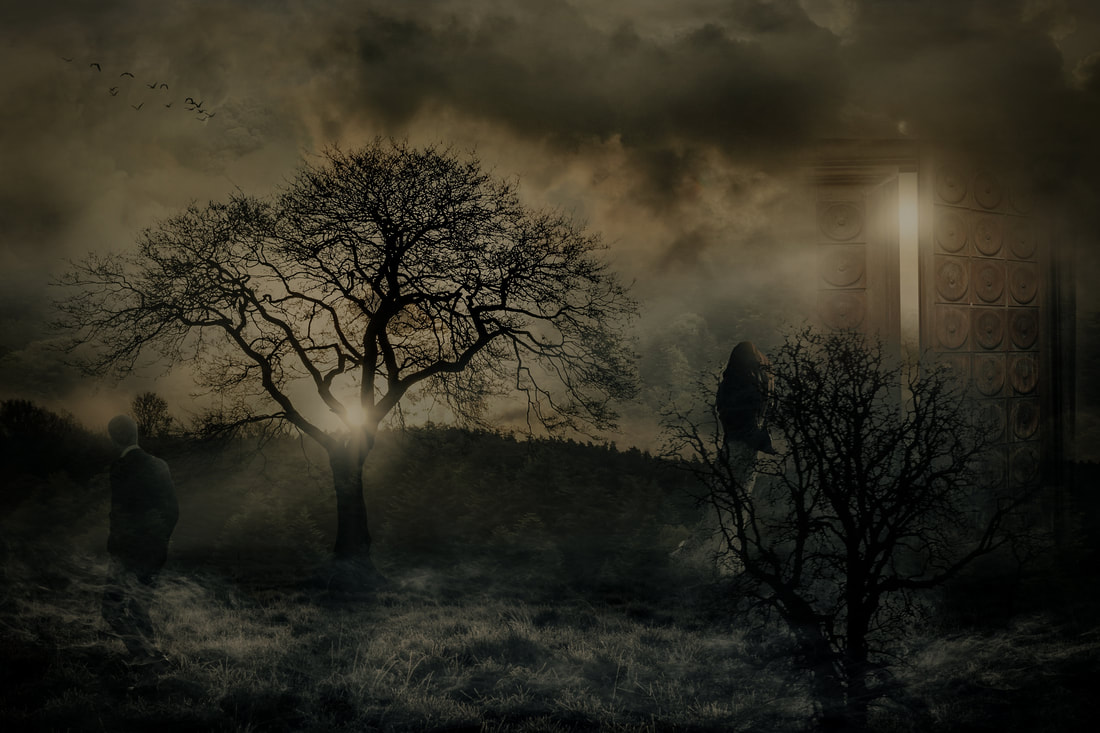
 RSS Feed
RSS Feed